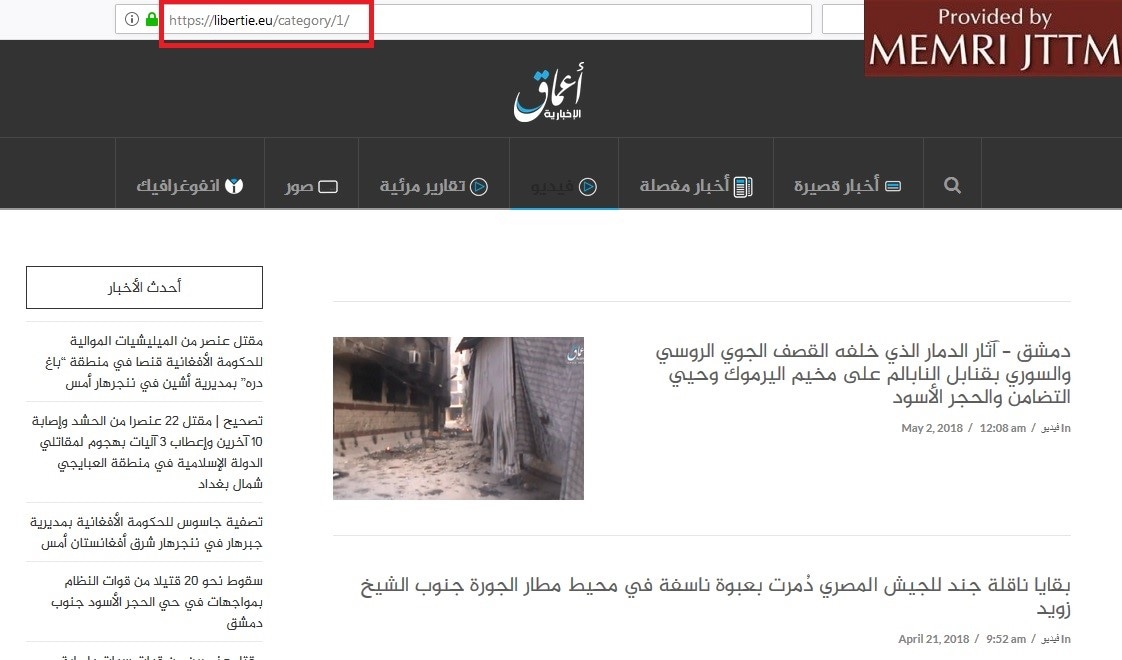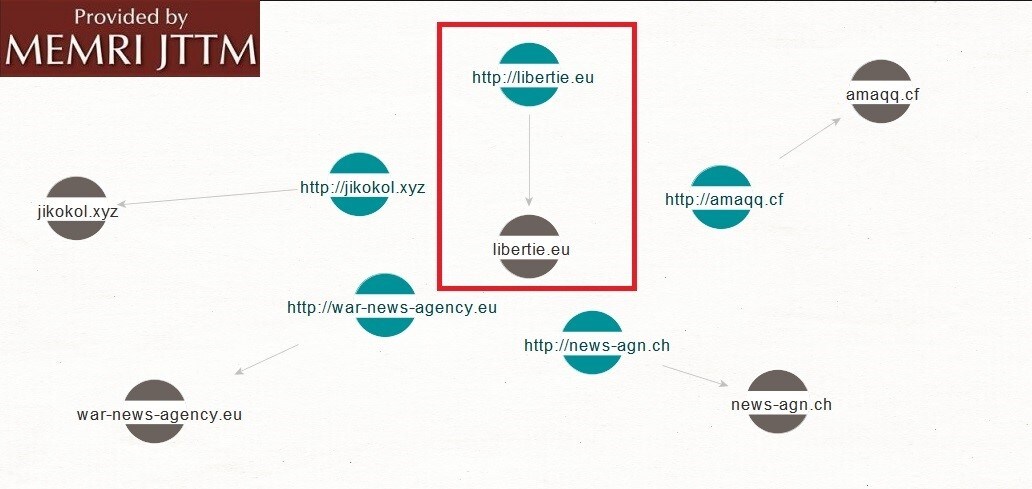The following report is now a complimentary offering from MEMRI's Jihad and Terrorism Threat Monitor (JTTM). For JTTM subscription information, click here.
On April 27, 2018, Europol announced that on April 25, law enforcement agencies from a number of European Union member states, Canada, and the U.S. launched a joint operation against the Islamic State's (ISIS) "propaganda machine" in order to "severely disrupt their propaganda flow."[1] The coordinated effort, which involved authorities from Belgium, Bulgaria, Canada, France, the Netherlands, Romania, the U.K., and the U.S., aimed, according to Europol, at hindering ISIS's "central capability to broadcast terrorist material for an undetermined period of time."[2] The operation appears to be a continuation of efforts that began in late 2015 when Europol informed all EU member states about the "technical resilience of the terrorist online infrastructure," which in return led to a "continuous joint effort" by law enforcement agencies to take down ISIS media outlets' "web assets."[3] Europol noted that the recent action, which targeted ISIS's A'maq news agency, among other things, has compromised the Islamic State's "capability to broadcast and publicise terrorist material."[4] Less than a week later, ISIS resumed broadcasting its news on two new A'maq websites: Libertie.eu and Newseurope.ru. The domain name chosen for the former, Libertie ("liberty" in French), appears to be a response to the attack on the group's online infrastructure. The new websites use the country code top-level domain names (ccTLD) .eu and .ru, representing the European Union and Russia, respectively.

A screenshot taken on May 2, 2018, of the two new A'maq websites.
The new websites look similar to previous and now-defunct A'maq websites and have sections titled "Short News," "Detailed News," "Video," "Video Reports," "Photos," and "Infographics."

Aside from its impact on A'maq, the recent operation had little or no impact on the Islamic State's online apparatus. Even during the brief period after the old A'maq website was taken down and before the new ones were established, ISIS continued to post its news items on the many ISIS-affiliated Nasher News channels on the encrypted messaging app Telegram. These posts included posting links to A'maq's own Tumblr page.[5]
SUPPORT OUR WORK


A Nasher News outlet on Telegram posting a shortened link to one of A'maq's newest websites (May 2, 2018).

A'maq's Tumblr page (May 2, 2018).
ISIS has shown resilience in its online operations over the last several years. It has launched more than 20 A'maq websites and more than 30 websites for its Al-Bayan online radio. It has operated numerous Telegram channels, apps, blogs, and "unofficial" websites. The plethora of online platforms available as well as the various means of concealing the identity of those behind those platforms and those using them are among the factors supporting ISIS's continued online operations.

A cluster of A'maq's websites since 2016.

A zoomed-in view of the A'maq cluster showing a recent A'maq website.
[1] Europol.europa.eu/newsroom/news/islamic-state-propaganda-machine-hit-law-enforcement-in-coordinated-takedown-action, April 27, 2018.
[2] Europol.europa.eu/newsroom/news/islamic-state-propaganda-machine-hit-law-enforcement-in-coordinated-takedown-action, April 27, 2018.
[3] Europol.europa.eu/newsroom/news/islamic-state-propaganda-machine-hit-law-enforcement-in-coordinated-takedown-action, April 27, 2018.
[4] Europol.europa.eu/newsroom/news/islamic-state-propaganda-machine-hit-law-enforcement-in-coordinated-takedown-action, April 27, 2018.
[5] Amaqnews.tumblr.com, accessed May 2, 2018.




